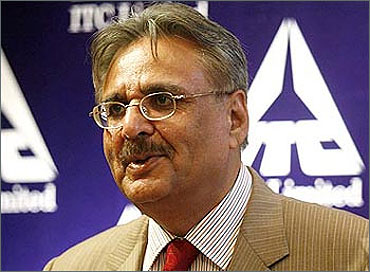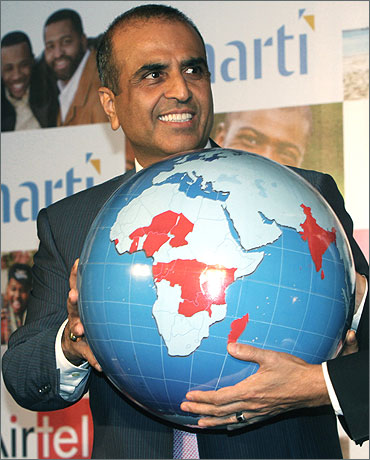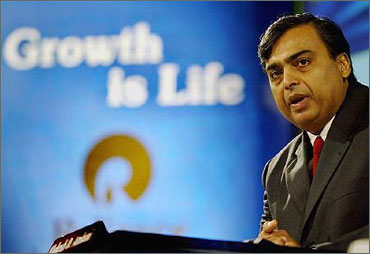 | « Back to article | Print this article |
Is there a 'right business strategy' for India?
The late C K Prahalad's theory on companies developing core competences has frequently been interpreted to mean that companies must keep a tight business focus, and stick to a single product or family of products.
The purist reading of the theory says that companies that have core competences should be able to use them profitably across product categories.
But the experience of the last 20 years shows that many multi-product conglomerates have lost their way while single-industry giants have emerged and done well.
The examples cited have included Reliance, Ranbaxy, TCS, Bharti, Maruti and others that have climbed the sales charts, and been rewarded by a stock market where foreign institutional investors have tended to look suspiciously at conglomerates.
Click on NEXT for more...
Is there a 'right business strategy' for India?
Indeed, Ratan Tata started his stewardship of his sprawling group by announcing that he would shed companies and move out of sectors (Tata Steel was on the endangered list once) and focus on a few businesses.
DLF, in turn, moved out of making electric fans and focused on real estate development.
It was left to Krishna Palepu of Harvard Business School to ask whether the "focus" business strategy that worked in developed markets was appropriate for emerging markets too.
Click on NEXT for more...
Is there a 'right business strategy' for India?
The question pops up when one reads what the press has been writing about ITC, which is celebrating its centenary year.
Chairman Yogi Deveshwar has talked of getting into new product categories, and of making an already diversified firm (cigarettes, hotels, paper, personal care products, foods) even more diversified.
Tata itself has been busy venturing into new fields - like DTH services - while individual firms like Titan and Tata Chemicals have moved into new product categories, like gold jewellery and water.
Click on NEXT for more...
Is there a 'right business strategy' for India?
Like these last two firms, Reliance interpreted Prof Prahalad's thesis to say that its core competence was not a product but a set of attributes, and decided that its own core competence was project execution (demonstrated in the move into telecom); but then it stretched the logic to move into an unrelated field like retailing.
Even new, single-entity groups like Bharti have tried their hand at insurance, retailing and agri-exports.
Clixck on NEXT for more...
Is there a 'right business strategy' for India?
And Hindustan Lever (as it was at the time) first adopted Unilever's global strategy of pushing "power" brands, only to give up the idea - thereby giving substance to Prof Palepu's argument that what works in developed markets may be the wrong strategy in an emerging market.
Somewhere along the way, has the argument against diversified conglomerates broken down?
Are single-focus firms like Ranbaxy, which are manifestly subject to the growing uncertainties of the global pharmaceutical market, riskier ventures than more diversified enterprises like ITC?
Click on NEXT for more...
Is there a 'right business strategy' for India?
In any case, what core competence did the GMR group have when it came to the complex business of airport management by bidding for Hyderabad airport?
Yet the group has now won airport contracts internationally.
But then, not all the diversifications have worked either.
Bharti has pulled out of insurance, and in none of the other diversifications has it repeated its telecom success. ITC still makes the bulk of its profits from cigarettes.
And while it has made a success of hotels and paper, its earlier diversifications into seafood exports and edible oils are best forgotten.
Click on NEXT for more...
Is there a 'right business strategy' for India?
When considering its diversifications, did Reliance with its "Only Vimal" background ask itself whether it really understood branding and retail marketing (needed for acquiring customers in businesses like telecom and retailing)?
In short, is there one right business strategy for a market like India, which is still evolving and will grow manifold in the next decade, or does it depend on the company's context - and a true understanding of its core competences?
The question is bound to get a variety of interesting answers in the coming years.







